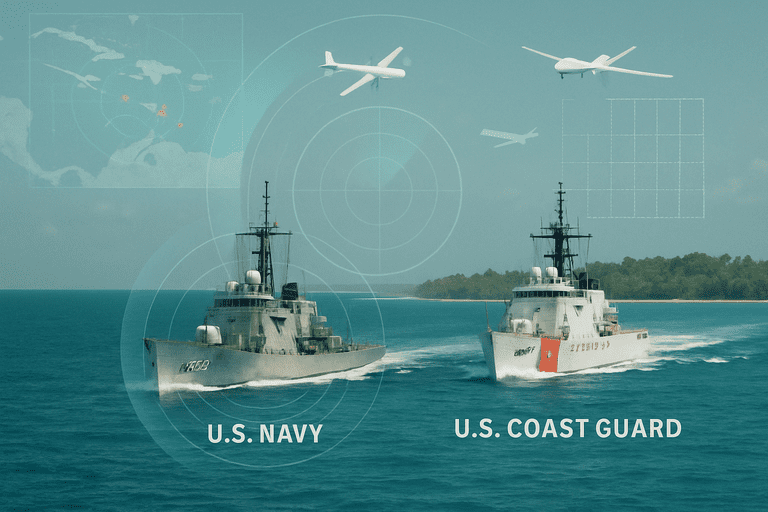🎧 Listen to the summary:
The administration’s stepped-up campaign against transnational narcotics networks in the Caribbean and northern South America is the kind of bold, unequivocal action a sovereign nation must take to defend its citizens and choke off the finances that fuel regional violence. This is a clear demonstration of American resolve: designating cartels and select transnational criminal organizations as terrorist entities, increasing assets under U.S. Southern Command, and intensifying interdiction at sea signal that the government will not tolerate safe havens for criminal enterprise.
Implementation is comprehensive and deliberately forceful. Navy and Marine units, Coast Guard cutters, and surveillance aircraft have been repositioned to intercept suspected shipments; public bounties and targeted strikes at maritime nodes reportedly tied to trafficking underline a willingness to use kinetic and non-kinetic tools in tandem. Civilian agencies are being asked to synchronize intelligence and financial-pressure tools, while renewed funding and technical assistance for Caribbean partners reasserts America’s leadership in the hemisphere. These are not cosmetic measures—they require sustained commitment, and that cost is part of the point: seriousness demands real sacrifice.
Those sacrifices are tangible. Frontline sailors and Marines, Coast Guard crews, and partner-nation security forces are shouldering higher operational tempos and longer deployments. Prosecutors, federal investigators, and Treasury officials must absorb expanded authorities and heavier caseloads as asset-freezing and network-financier investigations accelerate. Venezuelan civilians and migrants, already in a fragile humanitarian setting, will feel secondary effects as pressure on illicit networks ripples through local economies and migration patterns—an unavoidable human consequence of dismantling entrenched criminal systems.
The trade-offs are explicit and large-scale: resources are being shifted from other theaters and missions to sustain a persistent regional presence; naval and air units face increased wear and logistical burdens; and long-term costs for sustainment and partner assistance will rise. Legal and diplomatic friction is real—aggressive interdictions risk escalation with state actors and complicate cooperation where jurisdictions overlap. Implementation inefficiencies—ad hoc funding shortfalls, the risk of traffickers rerouting, and the administrative strain of coordinating multiple agencies on compressed timelines—are accepted as the friction of ambition.
Next steps are practical and measured: secure congressional funding for sustained operations and border assistance, formalize interagency oversight of intelligence and targeting authorities, and deepen diplomatic engagement with Caribbean and South American governments to manage legal frictions and humanitarian spillovers. The administration’s approach is unapologetically assertive; its willingness to bear evident costs is the clearest proof of its seriousness.
—
Ryan Mitchell reports on military funding, defense policy, and veteran support systems. He is a graduate of The Citadel and served as a civilian analyst for the Department of Defense before entering journalism. His reporting draws on firsthand knowledge of procurement systems, veterans’ programs, and the long-term cost of military readiness.



